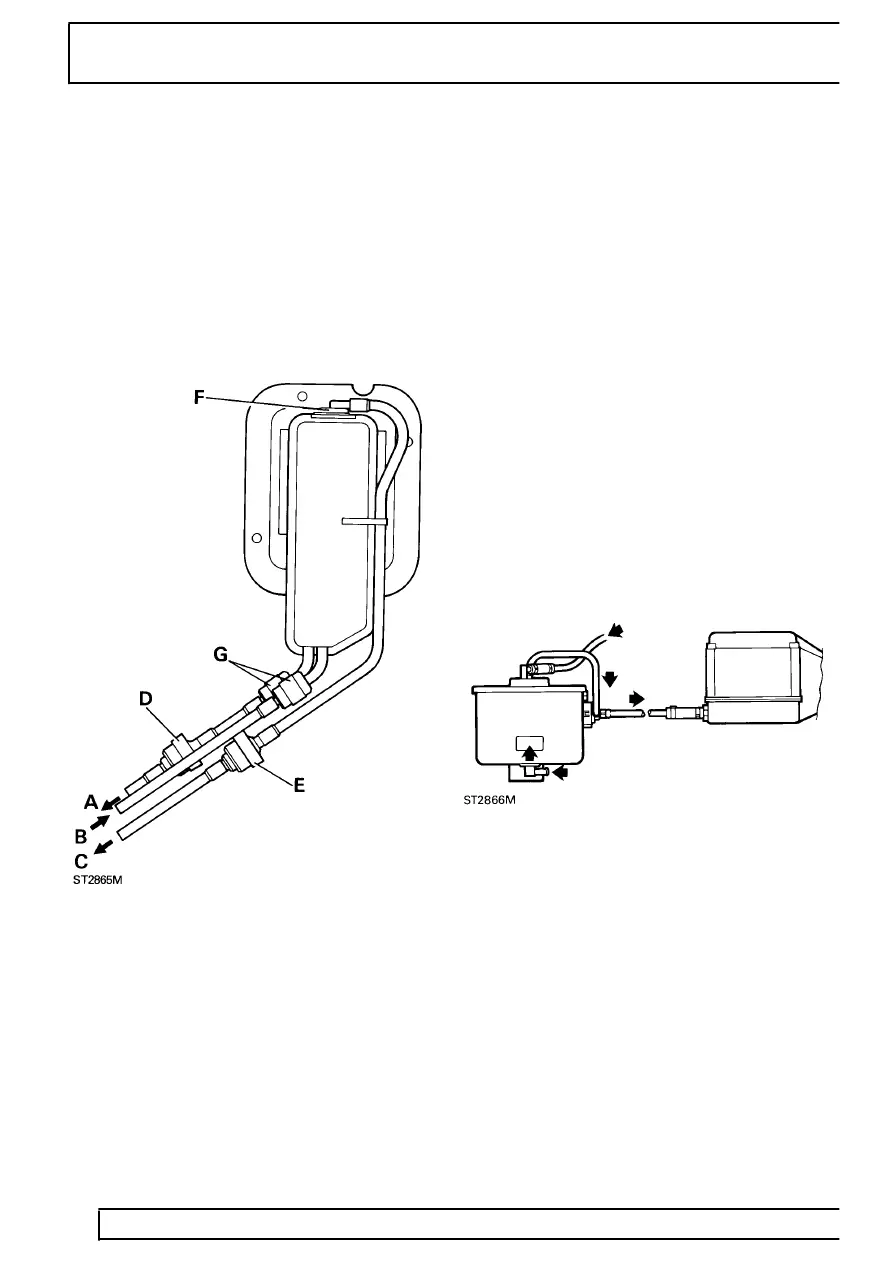Range Rover Classic

17
EMISSION CONTROL
4
DESCRIPTION AND OPERATION
Evaporative emission control system.
The system is designed to prevent harmful fuel vapour
from escaping to the atmosphere. The system
consists of a vapour separator tank, connected to the
fuel tank and located between the body inner and
outer panels on the right hand side of the vehicle near
the rear wheel arch. An adsorbtion canister,
containing activated charcoal, is positioned in the
engine compartment attached to the front right
valance. The two components are connected by a
pipe running the length of the chassis.
A
Pressure relief to atmosphere.
B
From fuel tank to separator.
C
To adsorbtion canister.
D
Pressure relief valve.
E
Pressure relief valve.
F
Shut-off valve.
G
"Speed Fit" connectors.
A pressure relief valve is fitted in the hose which is
open to atmosphere. This valve acts as a safety valve
should a build-up of pressure occur in the system, for
example if a hose became blocked or kinked. The
volume of vapour emitted, in such an instance, would
be acceptable.
A pressure relief valve is also fitted in the hose
connected to the adsorbtion canister and releases
vapor to the canister when the pressure in the
separator reaches between 5 and 7 Kpa.
In the top of the separator a shut-off valve is
incorporated in the vapor exit port to prevent the
possible presence of any liquid fuel being transmitted
to the adsorbtion canister should the vehicle roll over.
The adsorbtion canister, which is connected by a hose
to the plenum chamber, absorbs and stores the fuel
vapour from the fuel tank while the engine is not
running. When the engine is started, the vapour is
purged from the canister by air drawn through an
orifice in the base of the canister and by the influence
of vacuum at the top. The vapour drawn into the
plenum chamber through a solenoid operated purge
valve is finally burnt in the combustion chambers.
The purge valve, which is attached to the adsorbtion
canister support bracket, is controlled by the Engine
Control Module ECM which determines the most
emission acceptable time at which purging should
take place. This will normally be at engine speeds
above idle and when the vehicle is in motion. A signal
from the ECM to the purge valve operates the
solenoid and opens the valve to purge the canister of
fuel vapour.
